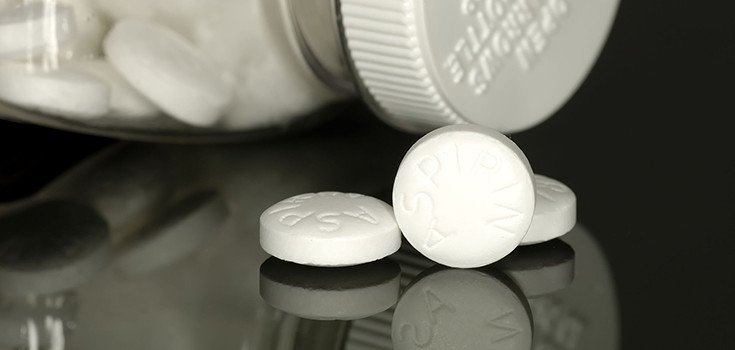Daily Aspirin ‘Could ‘Prevent Colon Cancer,’ But Causes Other Serious Side Effects

Aspirin has long been said to prevent heart attacks (though that claim may be bogus); now new research suggests that aspirin may also ward off colon cancer in people in their 50s and 60s. But that doesn’t mean that everyone should start taking the medication, doctors warn.
Last Monday, the United States Preventive Services Task Force introduced for the first time a broad recommendation to take aspirin daily to prevent a form of cancer. It is the first time, in fact, that any major medical organization has handed down a cancer-related directive.
The Danish Cancer Center Society Research Center released a study recently in the Annals of Internal Medicine which shows taking one regular aspirin a day, or two baby aspirin, can lower the risk of colon cancer by up to 30%. Specifically, baby aspirin was found to lower the risk by 27% and ibuprofen lowered it by 30%. [1]
Previous studies claim that other nonsteroidal anti-inflammatory drugs (NSAIDs), such as ibuprofen, may lower the risk of the disease, as well.
The study included more than 10,000 patients and 102,000 control participants.
“Long-term, continuous use of low-dose aspirin and long-term use of non-aspirin (anti-inflammatories) were associated with reduced colorectal cancer risk,” the authors say. But, they say, you must take the aspirin continuously. For how long aspirin must be taken is still unknown.
The study did have some limitations. For example, the study was based on participants who were taking aspirin in prescription form, not over-the-counter (OTC) products.
Additionally, OTC purchases of high-dose aspirin and low-dose ibuprofen dosing schedules were not available to the team. The study also didn’t factor in family genetics, diet, obesity, and several other factors.
The task force says that taking low-dose aspirin can help stave off colon cancer, particularly in adults aged 50 to 69 who are at high risk. The biggest benefit was observed in high-risk individuals in their 50s. [2]
The Risks You Take with Daily Aspirin or NSAIDs
Not everyone in the scientific community is praising the new directive, though, as NSAIDs are associated with serious side effects. In July, the Food and Drug Administration strengthened its warning about the cardiac risks associated with the class of drugs. The agency said that NSAIDs may increase the risk of heart attacks and strokes, even when taken for a short time. That risk is especially high in people with heart disease. [3] [4]
Aspirin is considered less risky than non-aspirin NSAIDs when it comes to cardiac risks, and is known to protect against heart attacks in many cases, but the risk does exist. Last year, the FDA changed its tune concerning which individuals should take a daily aspirin to prevent heart attacks. All middle-aged adults were originally urged to take a pill every day, but in 2014 the FDA said that only people who have had heart problems should take aspirin – even if they have a family history of heart disease. [5]
Studies show that aspirin can also increase the risk of gastrointestinal bleeds and brain bleeds, and increase the risk of Crohn’s disease, inflammatory bowel disease, intestinal perforations, and other major adverse events.
The risk of gastrointestinal bleeding increases with age, and the task force’s recommendation was “weaker” for high-risk adults aged 60 to 69 due to this risk.
The directive applies primarily to people with at least a 10% risk of heart attack or stroke over the next 10 years and a life expectancy of at least a decade. These individuals must be willing to take daily aspirin for that long, and should not have other underlying health conditions that cause bleeding.
Doctors say that no one should suddenly start taking aspirin or any other NSAID without first consulting their physician.
About 40% of American adults over age 50 use aspirin for primary and secondary prevention of heart disease, and that number will likely spike if the recommendations are finalized.
Additional Sources:
[4] FDA.gov
[5] Mercola.com
